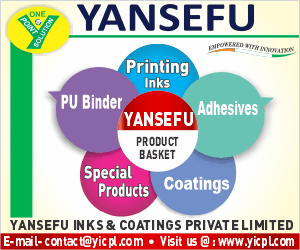
Symphony Environmental Technologies, a UK headquartered company, invented a scientifically proven d2w additive technology that makes plastics 100% biodegradable. Offering a futuristic and globally trusted solution to one of the world’s most severe environmental problems of non-biodegradable plastic waste, Symphony Environmental’s d2w additive can be used in plastics manufacturing to convert end-of-life plastics to nothing more than a soil component that is naturally bio-assimilated by bacteria and fungi.
The d2w additive technology makes plastics behave green like any other biodegradable substance on the planet. The technology has been studied for over 25 years and has passed heavy metal analysis and Organization for Economic Co-operation and Development (OECD) eco-toxicity tests.
When the environment is globally getting affected by plastics being released into the open environment, landfills, or oceans, where they stay for decades without degrading into the soil, the d2w technology is a game changer for the future of plastic use globally. Instead of being recycled, if the end-of-life plastics reach landfills or oceans, they are intrinsically converted to CO2, water and biomass through natural microbial action in a span of 17 to 22 months.
Several countries in the Middle East have already legislated to manufacture biodegradable plastic with such additives mandatory. With the invention of d2w technology, Symphony Environmental empowers governments, producers and brand owners to rethink the future of plastics by entering a new era of how plastics will be used and manufactured globally.
As per the United Nations Environment Programme (UNEP) report, about 85% of plastics turn into unregulated waste reaching oceans and landfills, and only 10% of plastics ever produced globally have ever been recycled. While the reduce, reuse, recycle (RRR) is quite often claimed to be one of the most effective mantras to solve the problem, it is not a solution. Also, compared to paper bags or products made from paper, there is 70% more environmental pollution than plastic alternatives. Many regulators worldwide could only see a way by banning single-use plastics, though it undermines the applications of plastics, was then considered in environmental interest. The d2w technology now fundamentally changes everything in how plastics are viewed, produced and used in the future.
Sunil Panwar, CEO of Symphony Environmental India, said, “We wanted to find a solution for the plastic packaging materials which doesn’t require banning of plastics and doesn’t put our valuable resources under stress. When plastics are a major environmental concern, at Symphony Environmental, we strived to find an innovative and economical solution that works for businesses, consumers, and the environment in the most economic, safe and sustainable way. Our approach involves redesigning of the consumer plastic packaging materials, where after the end of usage life packaging material will biodegrade itself both on land and water without adversely impacting the environment. When India seeks a solution, we are happily here with one.”
The d2w technology has passed the American, British, UAE, French and Saudi standards for testing biodegradable plastics. Several global laboratories in the world including those in America, the United Kingdom and Spain, conclude that d2w additive changes the molecular structure in the biodegradation process than simply fragmenting the material, which is then naturally bio-assimilated by microbes in the soil, thereby leaving no heavy metals or eco-toxicity behind post the biodegradation process.
The d2w technology – thoroughly researched, tested, and adopted globally – is now being offered to plastic manufacturers in India. It can be used in both food and non-food applications. It does not change the mechanical and opaque properties of the packaging material during its usage life.
It is suitable for multiple applications in LDPE, LLDPE, HDPE, BOPP, PP Films, PP Raffia, Injection Molded, Blow Molded, Thermoformed (PP) products. Products like carrier bags, bin liners, aprons, gloves, plastic films, wrappers, bubble wraps, shrink films, mulch films, woven sacks, thin-walled containers, caps and closures, all kind of PE- and PP-based flexible and rigid packaging is possible with d2w additives.








